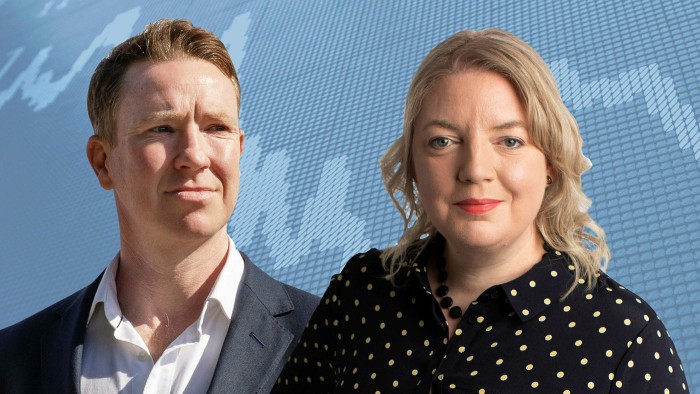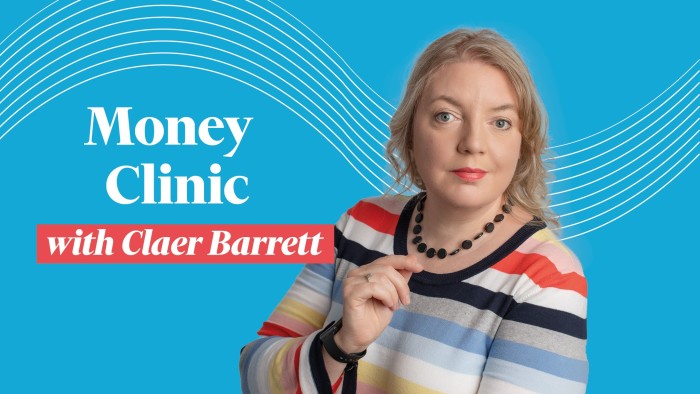Why Chinese tech stocks remain ‘a sustainable choice’

Roula Khalaf, Editor of the FT, selects her favourite stories in this weekly newsletter.
“Don’t consider what a company might do in the next 12 to 24 months. Think about what it might look like in 10 years’ time.”
So says Malcolm MacColl, the global equities specialist jointly at the helm of Baillie Gifford, the Scottish asset manager responsible for over £350bn worth of investors’ cash.
An early investor in Amazon, Tesla and Moderna, Baillie Gifford’s tried-and-tested strategy of holding shares in companies with high growth potential for the long term has rewarded its investors with outsized returns.
However, the Chinese government’s regulatory clampdown on tech companies has recently hit the performance of its funds and investment trusts with exposure to fast-growing companies such as Ant Group, Baidu and Tencent.
“My instinct is that many of these developments are not nearly as concerning as some might have you believe,” says MacColl when interviewed on the FT’s Money Clinic podcast.
“China developing its regulatory framework is not a bad thing. What is difficult for people is that they do it at such a pace that you don’t see things necessarily coming and that can feel terribly unsettling.”
Podcast: Investing in growth for the long term

Claer Barrett interviews Baillie Gifford’s global equities specialist Malcolm MacColl. Listen here
MacColl, who became joint managing partner of Baillie Gifford in April and manages its Global Alpha Strategy, stressed the firm’s long-term commitment to Chinese equities.
“Yes, there is a reset going on which may actually impair the near-term profits of some of the businesses, including some of those that we invest in. But ultimately, I actually think it might also make these businesses more sustainable.”
Founded over 100 years ago, the Edinburgh-headquartered investment firm is privately owned by its 47 partners who work full time in the business.
“Private ownership gives us a stability which is extremely rare and allows us to be patient in the most impatient of industries,” MacColl adds.
Famed for taking a long-term view, Baillie Gifford’s typical “hurdle rate” for a new investment is the ability for a company to double in value in five years. It tends to target high growth tech companies and disrupters, but also invests in more cyclical businesses if it believes their shares are significantly undervalued.
On the podcast, MacColl explains how Baillie Gifford’s fund management team build an “investment hypothesis” for each company they choose to back, considering how different scenarios could affect a given stock’s future valuation and profit-generating ability.
Saying this was something private investors could emulate, MacColl adds: “How do we expect this investment to play out over time? What are the signals which will tell us that is working out, or working out poorly?”
MacColl explains the hypothesis behind the group’s investment in cruise operator Royal Caribbean, and how following these signals influenced the timing of its acquisition and disposal of a significant stake in the business.
“If you’ve got information which is undermining your thesis coming through . . . [that is] going to tell you to sell. And you can say, fine, I saw that this was a plausible outcome. That doesn’t mean I’m stupid.”
MacColl has a message for younger investors tempted to take a short-term gamble on “meme stocks” such as GameStop.
“Do you fundamentally believe that this business is going to be larger and more profitable? Do you think it’s going to be more valuable — yes or no? That’s the question that we should be asking ourselves.”
To foster a long-term approach, he encouraged investors to think of the concept of “a coffee can portfolio” to stretch their investment horizons.
“If you had to take 20 stocks and put them into a coffee can for 20 years, knowing you could not touch them, what would those businesses be? That sort of exercise is the type of thing that anybody can do, and is quite a good mental discipline.”
In the podcast interview, MacColl affirms Baillie Gifford’s commitment to investing in tech, coining a new term — “phigital” — to describe the merging of the digital and physical worlds that he believes will drive the next wave of growth. “I think that we’re going to see a third wave of digitisation as the physical world around us is transformed,” he says. “I think that’s going to manifest itself through industrial automation, through much more investment in connected healthcare devices and in areas like autonomous transportation.
“The continued digitisation of the world is something I think has got a long way to run.”
To listen to the podcast, click on the link above or search for Money Clinic wherever you get your podcasts.
Comments